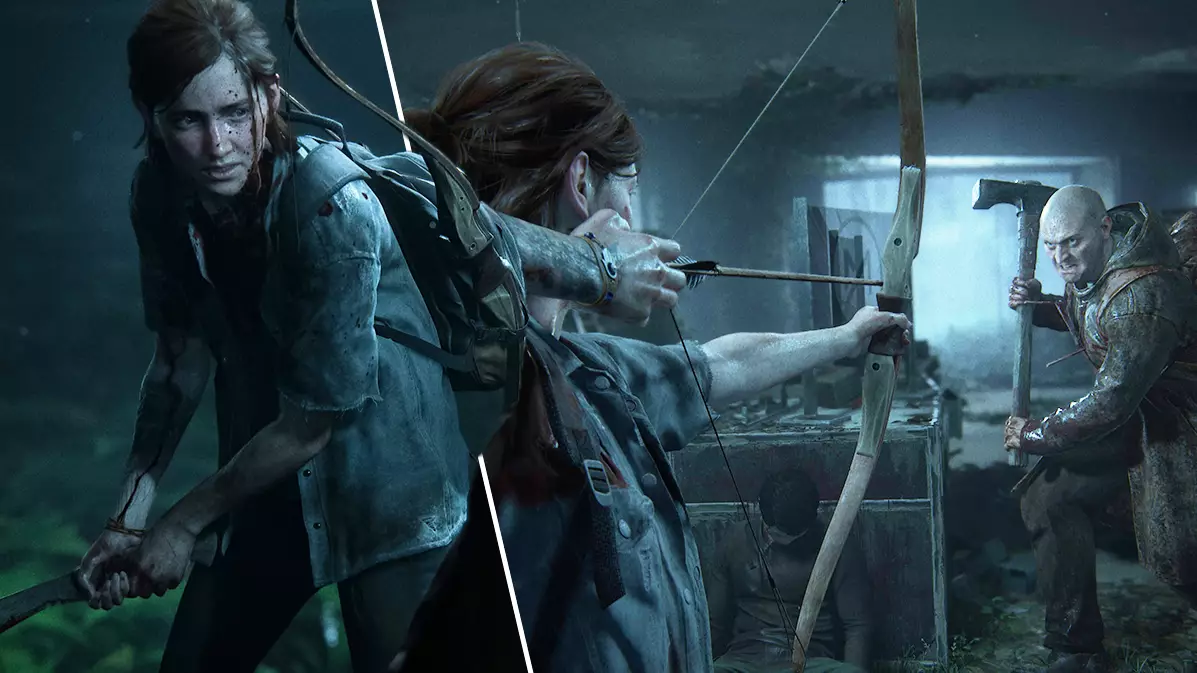
This article contains significant plot spoilers for The Last of Us Part II, right up to the end of the game, as well as minor spoilers for the first game and its DLC. This includes screenshots depicting certain scenes. Please only read on if you've finished these games, or don't mind learning about the fates of key characters.
I've read a lot about the violence in The Last of Us Part II. Even before the game was released, it was the subject of much discussion thanks to a frequently disturbing marketing campaign. In a lot of ways, excessive violence has become part and parcel of the action genre, and the depths this game goes to are dark indeed. Not just in terms of physical violence, but also experiences of homophobia and transphobia.
The Last of Us Part II isn't all darkness (as our review details) - but I don't think it's unreasonable to be completely put off by how it's been presented in previews and trailers, and by the content of the final game itself, which can certainly be appreciated as unpleasant. I also recognise that I have a higher tolerance for the kind of misery that the game delves into than some. In fact, its violence was important in helping me relate to Ellie, its protagonist who returns from the first game of 2013.
Advert
Significant story spoilers follow from below
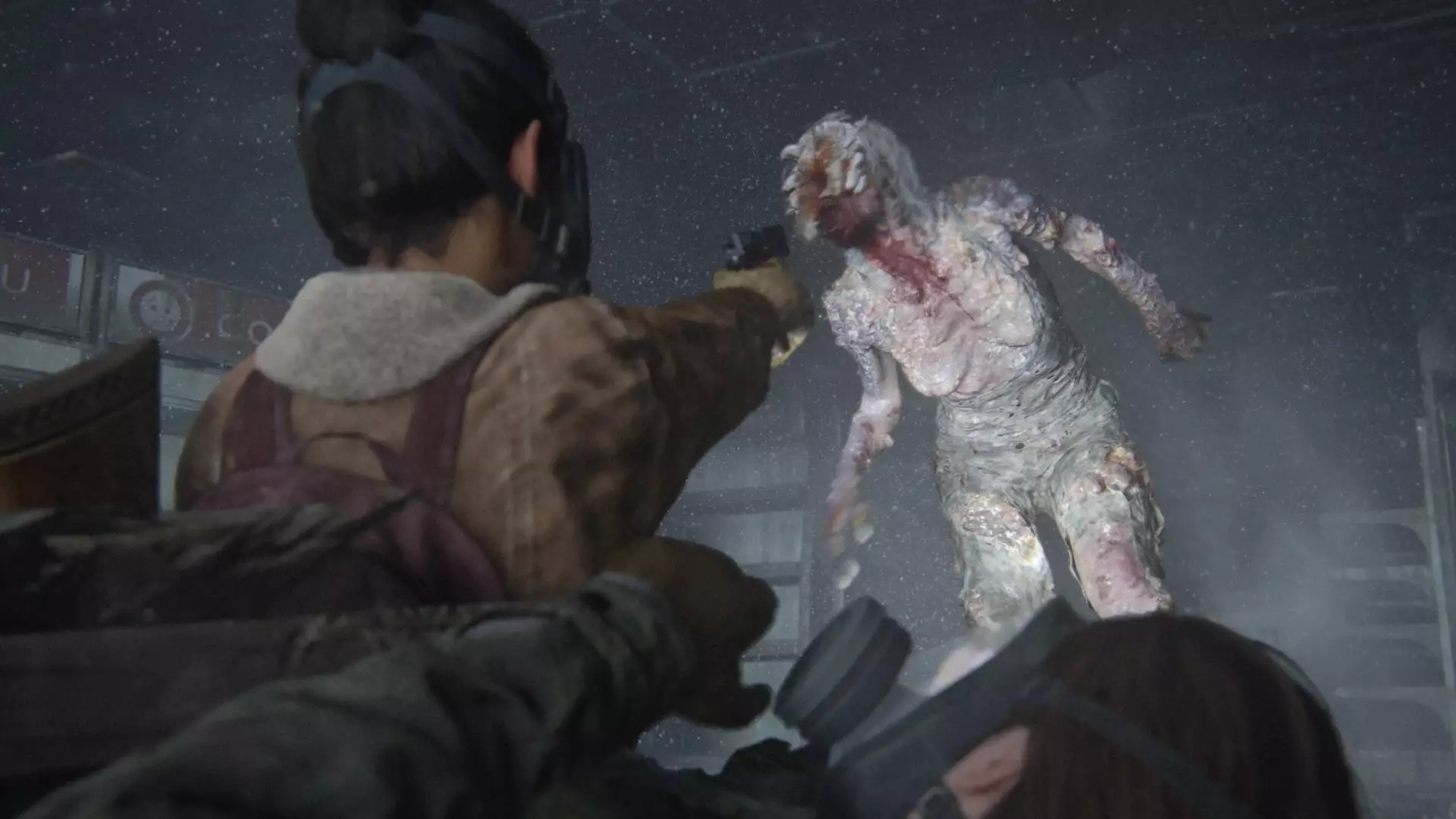
Part II shows a world that's maybe even more violent than the first game's - and for me there is serious catharsis in confronting an environment like that. Violence is the core of so many games, but here it is messy and uncomfortable. People don't die with the slick casualness we're accustomed to in series like Assassin's Creed or its ilk. It's not some futile pursuit of realism that makes this engaging for me - it's more that this kind of violence, fighting tooth and nail to get through, is familiar.
I grew up in pretty violent surroundings - even if I never appreciated it at the time - within which I was an equal participant. It's difficult not to be when it's that or be beaten, or worse. I've seen things as gnarly as what the game attempts to depict. It only gets tougher when you're queer and strangers suddenly identify you as something they hate. So a lesbian fighting by the skin of her teeth to exist in the world? That resonated with me, a hell of a lot.
Advert
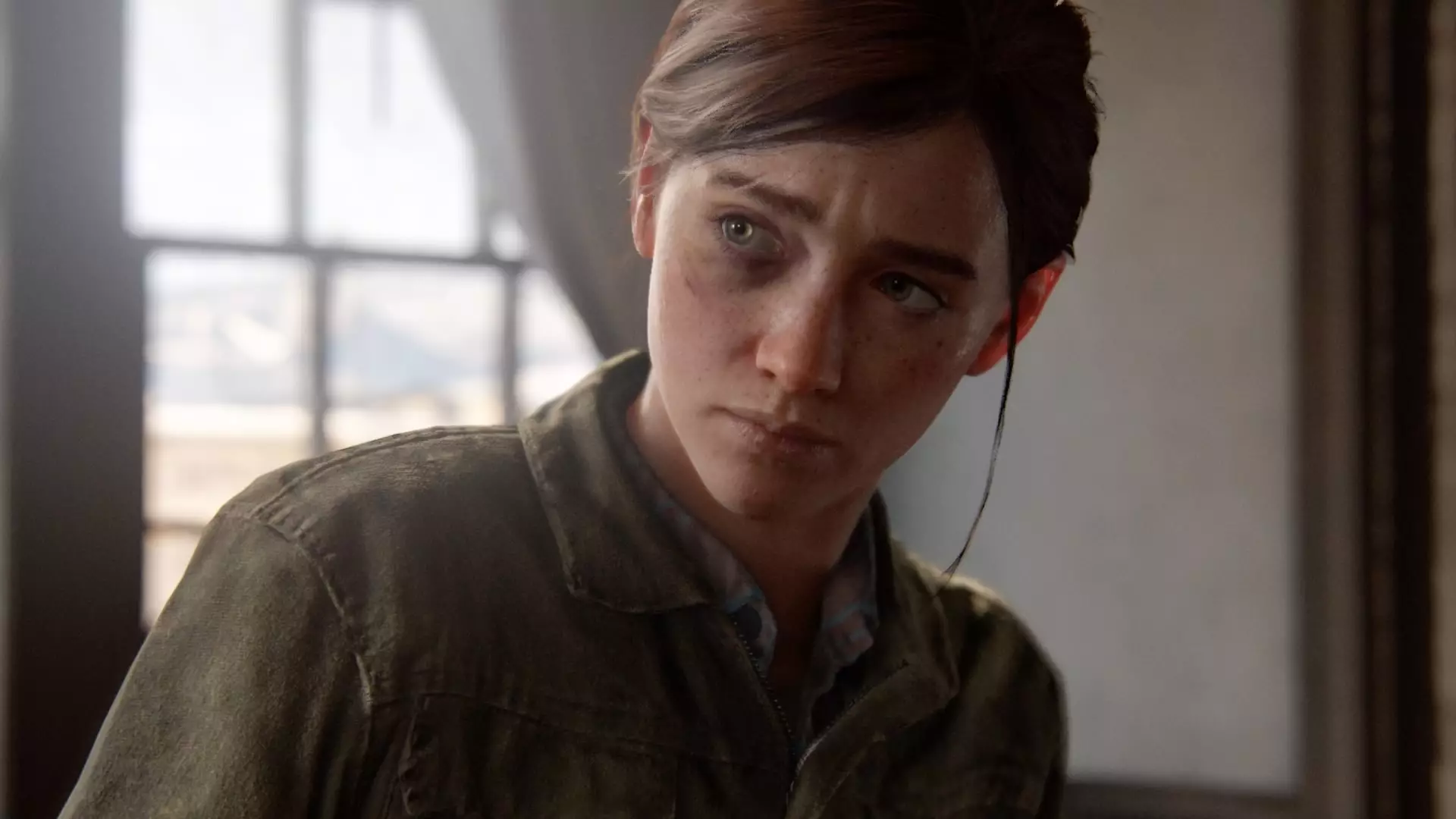
There've been a few (in my opinion, poor) comparisons between this game and certain films; but if there's a valid cinematic comparison to be made, the movie that came to my mind throughout The Last of Us Part II was the violent, grungy Green Room - where a punk band is trapped backstage at a remote club, and forced to fight the neo-Nazis who drink there. Its violence is grim and matter of fact, but it's never less than necessary for its protagonists. If they don't fight, they die.
That's how it felt to be in Ellie's shoes. On her daily patrols around the game's early setting of Jackson, Wyoming, the threat of infected always looms, and other humans can just as easily be deadly. Given all that, it's no surprise that the first thing on her mind when losing someone close - Joel is murdered within the game's opening hours - is revenge. Especially when she's rendered helpless and forced to watch him die. His killers might leave Ellie alive, but they torture her as much as they do Joel. And he wasn't the first to die, either. There is a long line of losses for Ellie that goes back to Riley and the pair's time together in Boston, their relationship being the subject of the first game's excellent Left Behind DLC.
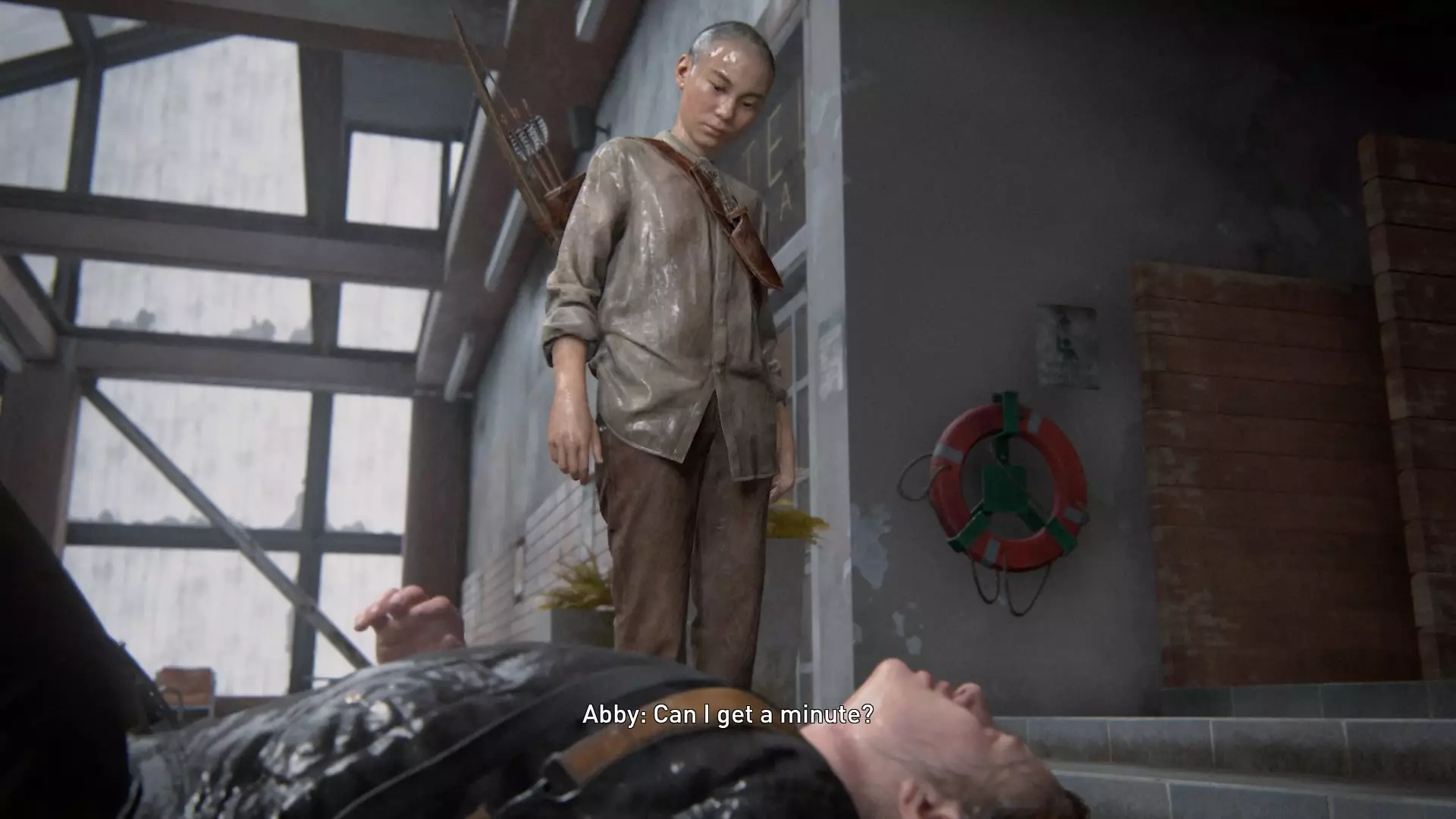
Advert
I don't think The Last of Us Part II wants us to feel bad about violence (although it certainly never lets us feel comfortable with it), but it wants to make us concerned with where it's directed. There are no tears shed for the game's worst people, no chastising the violence inflicted upon the Washington Liberation Front soldiers following orders, the Seraphites (derogatorily called Scars by the WLF) blindly clinging to their faith, or those who exploit others for their own ends. And even among the game's own protagonists, not all violence is equal.
The surprise halfway through that we'll be playing a significant part of the game as Abby, who dealt the deathblow to Joel, initially put me off. I didn't like her at all, and it struck me as an attempt by Naughty Dog to tell us: "See, both sides are bad!" But over time, if anything, I feel that Abby's section throughout the second half of the game almost justifies Ellie's actions in the first.
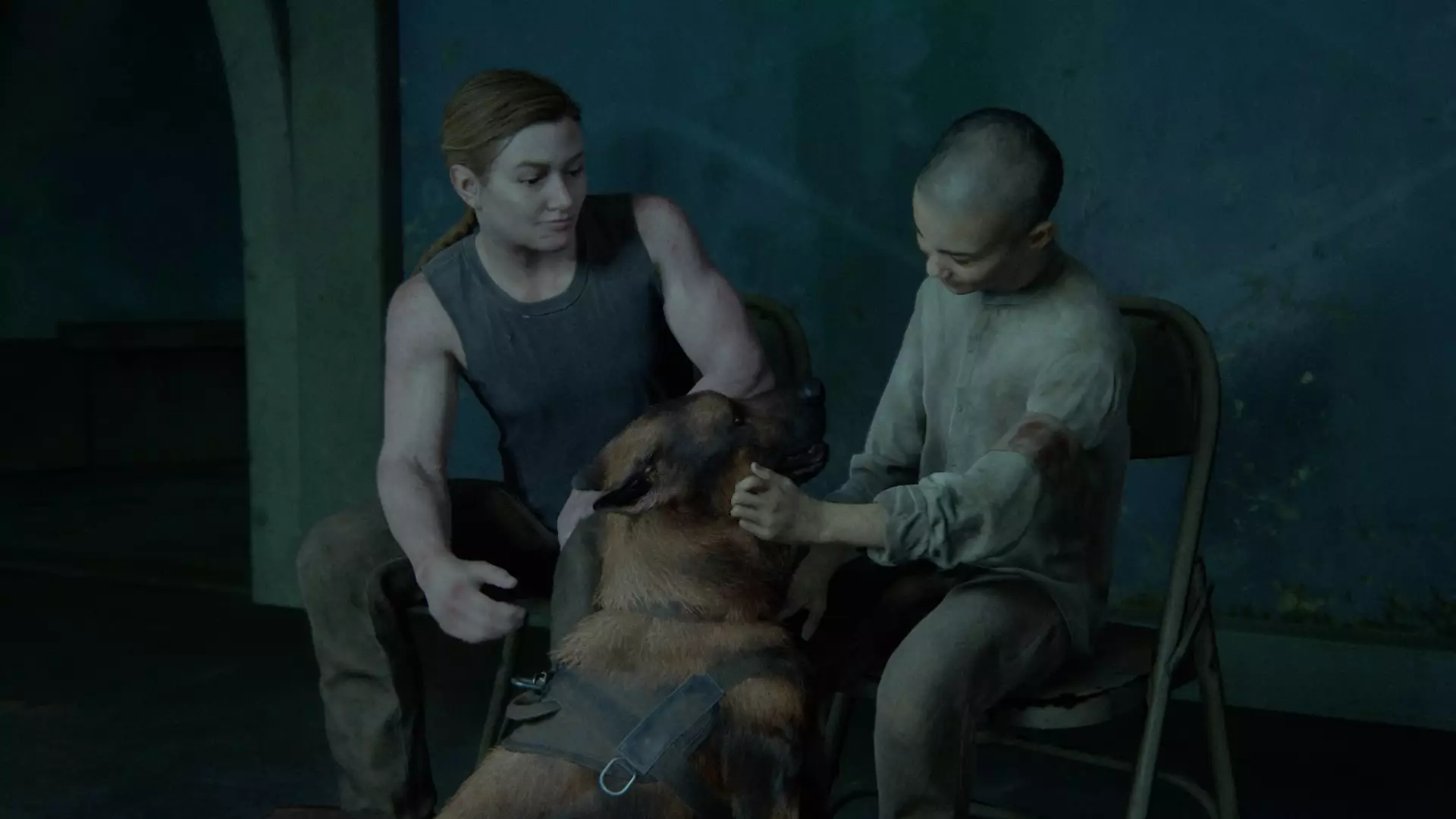
Owen might be more innocent than most, but the rest of Abby's crew - those we meet alongside her on the outskirts of Jackson - are painted as soldiers through and through, killing anyone who isn't one of them. Her friend Manny even talks about how a bunch of children, who are part of the Seraphites, deserved to be killed. I didn't mourn him much when he died, outwitted by Joel's brother Tommy several hours later. Even Owen's partner Mel, who seems more considerate, is actually one of the most vocal about killing Ellie and Tommy, deeming them loose ends.
Advert
Abby herself wasn't a sympathetic figure to me for a large chunk of the game. Crucially, Ellie never learns that Abby is avenging her dad, killed by Joel at the end of the first game; but Abby knows why Joel did what he did, and who he did it for. In fact, she even advocated for Ellie's death years ago at the hospital where her father was murdered. So her revenge came across as more cold and calculated - which made her redemption, in saving the runaway Seraphites Lev and Yara, feel more necessary.
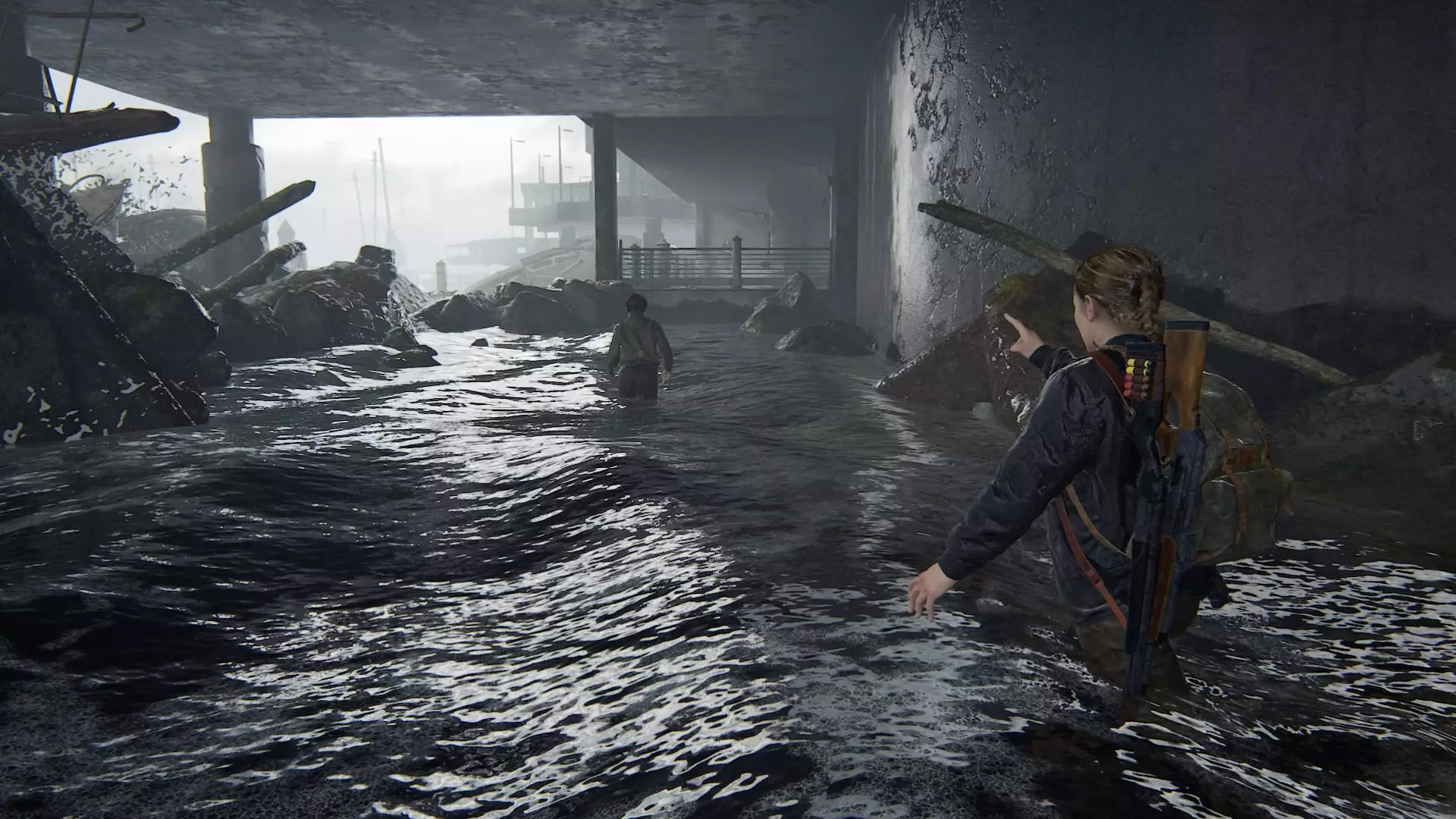
In her protection and adoption of Lev, in a twist of fate, Abby essentially steps into the role Joel provided for Ellie in the original The Last of Us, and cements that in many ways these games are about found families. If anything feels true to queer experiences, having to build a family of your own is it.
In a way, though, it's easier for Abby to outgrow her hatred and trauma. She gets her revenge at the game's start, and we never see her all too haunted by it. Ellie, on the other hand, is constantly denied the justice she wants.
Advert
When Abby's friends tell her they could have killed her but didn't, appealing to her sympathy, all Ellie can say is. "Maybe you should have." A small expression of guilt that tells a lot about how Joel's death has affected her. As expressed in the first game, Ellie's greatest fear is being alone. She explicitly talks about being afraid of losing Joel, about the survivor's guilt she feels over outliving Riley and many others. This is her worst nightmare come true.
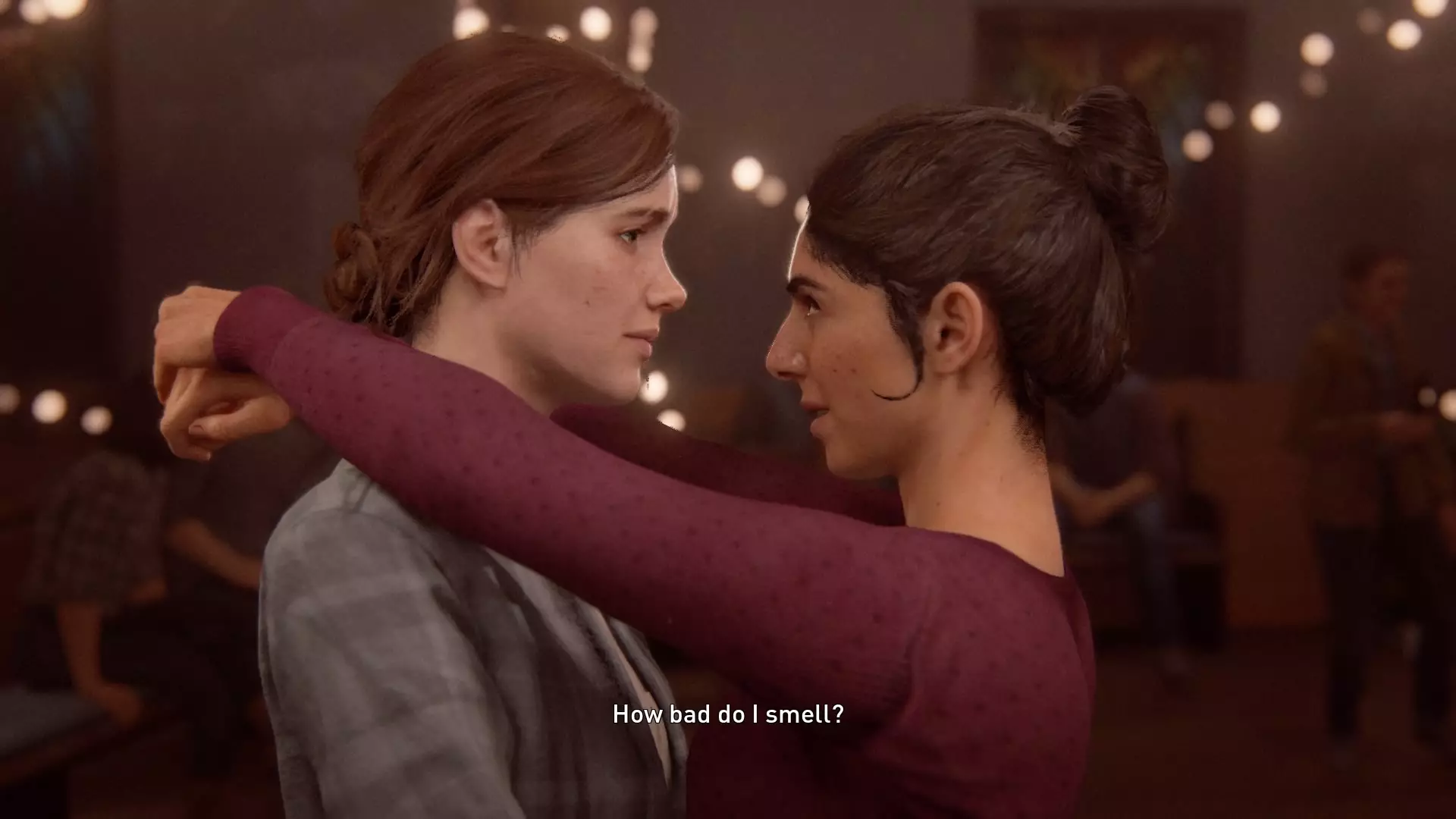
And it's why her relationship with Dina is so important, and so fraught. Dina just wants to be there to support Ellie, through the struggles and all the mistakes. They might ultimately end up apart,but having that unconditional love, even for a little while, can make a world of difference. A late-game scene where Dina helps Ellie through a PTSD episode is familiar. That's what healing looks like to me. Not a gentle overcoming of trauma, but a painful process.
The game isn't purely about pain, though, and there are many sequences of peace and happiness throughout. In one of the game's most heart-warming sequences, Joel takes Ellie to a museum where she gets to see model dinosaurs (my dream day out, honestly) and enjoy a slice of the childhood she's been denied. The lie he told at the end of the first game hangs over the memory, but nevertheless there is tremendous healing here.
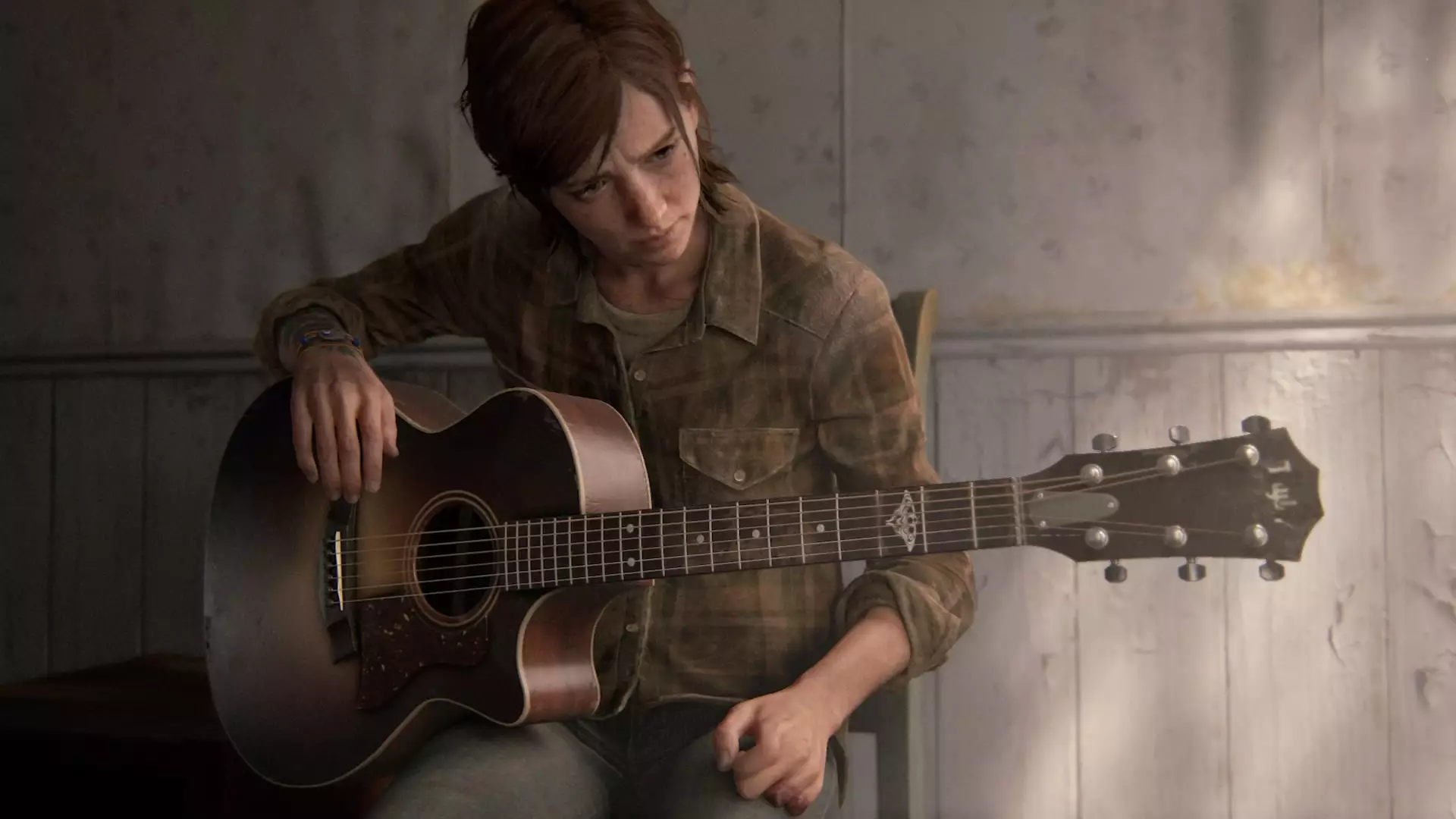
At the end of the game, Ellie returns to the farmhouse that was once her home with Dina and their child. She doesn't cry or shed a tear. And how could she, when that empty house is how she's always felt anyway. Stuck in lockdown for three months, I've found a similar strange calm. Unable to heal, Ellie is unable to let love into her life. Part II's final flashback, a last reminisce with Joel, shows us that what Abby took from Ellie was a chance for forgiveness and healing. That's the true loss she's been avenging. A final attempt to play her guitar, unable to hold the strings with two fingers missing, is maybe obvious but it's affecting imagery nonetheless. You do feel like you've lost a part of yourself.
It's not a happy ending and the hope for Ellie's future, for healing, is small. But by making it difficult, by not making it assured, The Last of Us Part II sticks closer to the slow reality of what healing from trauma is actually like. That won't be everyone's experience. But as a lesbian who grew up in violence, this game has helped me feel empowered and seen. The ending says to me that healing isn't really something you ever achieve. It's something you keep trying, every day, a bit at a time.
Featured Image Credit: Sony Interactive Entertainment / Naughty DogTopics: Feature, PlayStation, Opinion, The Last of Us Part 2, PlayStation 4, Naughty Dog, The Last Of Us